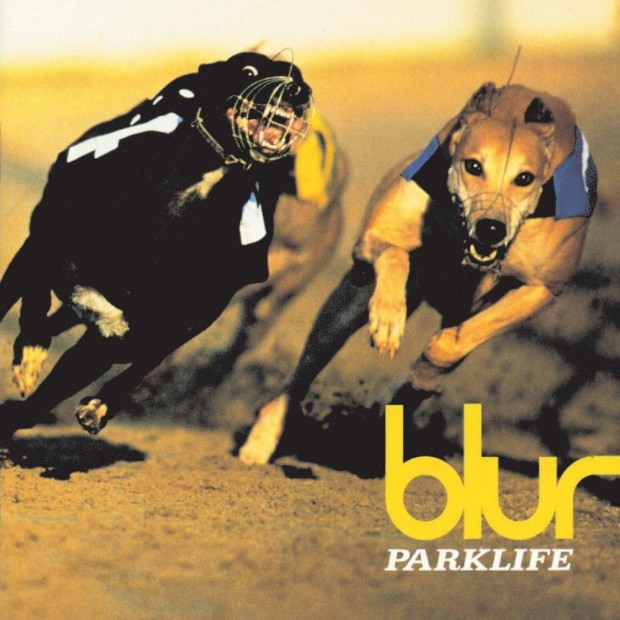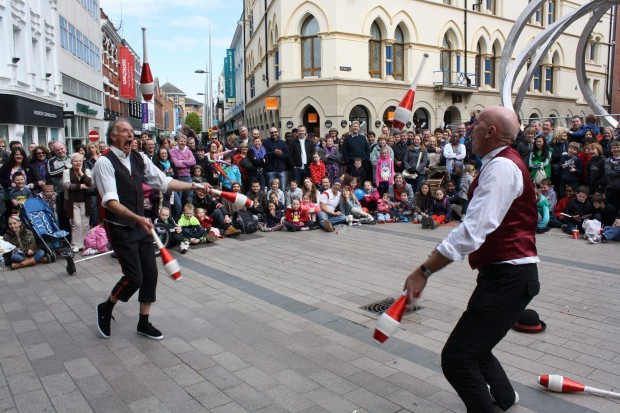There is something to be said about a frankly worrying number of classic records which is that many of them aren’t up to scratch. There are countless albums which on release were showered with some of the most golden platitudes ever forged. They captured a zeitgeist so perfectly that they must be regarded as true classics. But when you remove them from their time frame, many of them struggle to stand out. Pills ‘n’ Thrills and Bellyaches is a fun record, but it’s nothing more than that. Post Merriweather Pavilion is a collection of bleeps that we convinced ourselves was something profound. Exile on Main Street is theaccept sound of a collection of drunks smoking too much, caring too little and drawing out everything for an LP too many. This knowledge, though, means that those records that do manage to stand on their own two feet when removed from their original context are all the more impressive. Parklife is one of those records. While there may be some debate as to what is the correct ranking of Blur albums, there tends to be little disagreement as to where their 1994 effort sits. It’s an almost faultless odyssey through the minutiae of 1990s British life, presented with an acerbic wit and some truly spectacular music behind it.
What’s first noticeable is that the band finally know exactly who they are and what they want to say. While their previous effort, Modern Life Is Rubbish, hints at this kind of greatness buried in the mix, it never quite fully reached those heights. But with Parklife, the group seems to have walked into the studio with the intent of remaking that record but replacing every single one of that album’s flaws with solid gold plating. The album touches on all of the same major bases of Modern Life but finds something new to say about them. The American worship which was culturally strangling Britain at the time is flayed on ‘Magic America’, the inevitability of a destructive mid-life crises as a consequence of contemporary monotony is given its time in the sun with ”Tracy Jacks’ or the fact that modern life is just rubbish with ‘Parklife’. But rather than just reiterating everything verbatim, ala The Stone’s Beggars Banquet and Let It Bleed, the group expand on these ideas and adds some new ones to the mix. What’s evident throughout the album is just how unselfconsciously weird it is. It begins with a Europop parody that perfectly encapsulate how vapid the whole genre was (‘Girls and Boys’) before effortlessly slides into a multitude of genres. These range from a spacey, synth driven exploration of astronomical formations, an instrumental passage with a lilting waltz rhythm (‘The Debt Collector’), a Jacques Brel inflected treatise on the ambiguity of love delivered in both English and French (‘To The End’) , new wave (‘Trouble In The Message Centre’) and elevator music with a punky twist (‘Lot 105’. What’s most impressive is that it does all this without ever seeming as though it’s trying too hard. It also never allows these genre shifts to take control of the overall atmosphere and sound. Unlike Leisure, where everything felt like a collection of scenesters doing their best Manchester impression, every single song sounds like it belongs to Blur. They’ve crafted everything to within an inch of it’s life and have put so much of their DNA into every single track. The record feels like a band who want to showcase how rich and varied they can be rather than making a scattershot, desperate effort that tries to appeal to everyone in a vain hope for widespread acceptance.
With this newfound control, the band finally feel like a fully formed whole. Whereas before there was always the sense that each member was playing their instrument in isolation and it happened to sync up with everyone else, on Parklife everyone fits together. Alex James’s base fills out the verses on tracks like ‘Tracy Jacks’ and ‘Clover Over Dover’, while Dave Rowntree’s drums for the first time are given the chance to run wild. Rowntree slides elegantly between the genres and finds something interesting to do with each track, be it ‘To The End’s’ deep tribal bass, ‘Girls and Boys’ mechanical club beat or ‘Lot 105’ rampant cymbal heavy madness. But fundamentally though, he plays off Graham Coxon and James with an deft hand that, like most good drummers, his work goes so well that it goes entirely unnoticed. Vocally the band just kill it. With various harmonies that break through the levees and flood the mix, there is some kind of nuance to vocals that is discovered on every new listen. In particular, the likes of ‘Trouble In The Message Centre’ and the truly special ‘Magic America’ the various “oohs” and “ahhs” that could very easily become cloying and obnoxiously twee are perfectly positioned. On this release, Damon was able to craft his words into a deadly weapon.
Over Parklife’s sixteen tracks, Damon does his very best to skewer every sacred cow in modern British life. While at times he can arrogant and obnoxious, there is surprising amount of heart and affection in his fury. ‘Clover Over Dover’, for example, is a rather sad tale of person who has lost all hope and has decided to commit suicide. He tells this story with a sense of empathy and understanding, rather than scorn or, worse still, pity. Mostly, he wants the UK to be a better place, but it doesn’t seem to want to be. The youth are either vapid (‘Girls and Boys’) or smelly, apathetic slobs (‘Jubilee’). We all seem to be so obsessed with America that we’ve perverted our language, mythologized everything about the place from the diners to the skyline and have become obsessed with more channels than we’ll ever need, as is the case on ‘Magic America’. There is also a surprisingly layer of nuance to the lyrics with certain phrases and motifs linking various tracks, as is the case with ‘Magic America’s’ refrain of “all the people/all the people” bringing us back to ‘Parklife’. It’s a loopy and twisty record that really only falls down once you reach the begin and end.
The real shame with the record are the bookends. The album begins with ‘Girls and Boys’ and concludes with ‘Lot 105’. ‘Girls’ is good, but lord knows it isn’t the song that this album should have started with. It’s too long, and it’s the one that probably ages the record the most as the satirical Europop inclinations mean a lot less as time marches onwards. It’s the only real hurdle on the record and listening to it, it does feel like something that has to be surmounted before the real fun can begin. On the flipside there is ‘Lot 105’, which a jolly good romp; elevator music that transitions to noisy, sloppy punk with all the grace of a four car pile up. It’s terribly good fun, but it’s an awful choice for the album’s final track. It immediately follows on from ‘This Is A Low’, the disc’s strongest track and arguably one of the best songs the band ever wrote. ‘Low’ is moody and atmospheric but features one of Coxon’s finest solos. It’s a genuinely emotionally powerful point in the record and feels like the natural end through our trip through this parklife. But instead we conclude with a frolicsome little ditty. It doesn’t sit right. But that is the nature of the beast and Parklife is the true Blur album. It’s one of those rare points where all the parts mesh together to make something fresh but familiar and somehow ageless yet profoundly contemporary. Having created such a towering achievement, you’d wonder what the hell could you do next. With that pressure the group had to find some kind of a relief, an escape. Will Murphy
Check out Will’s articles on Leisure and Modern Life Is Rubbish. The Great Escape coming next week.






